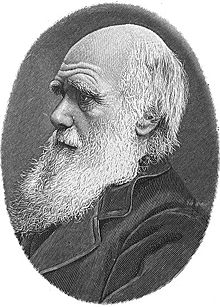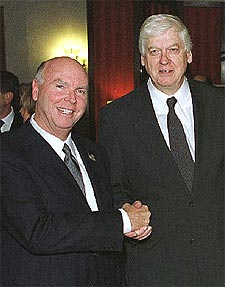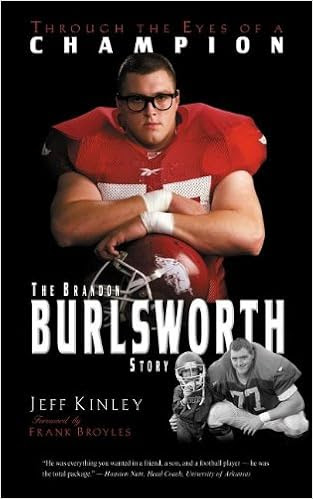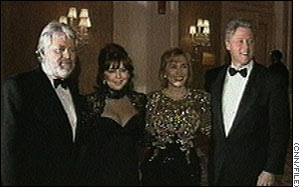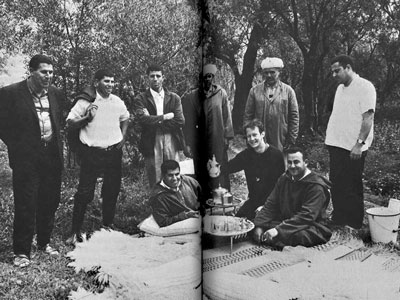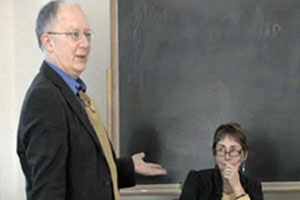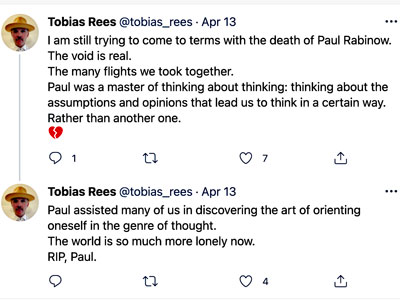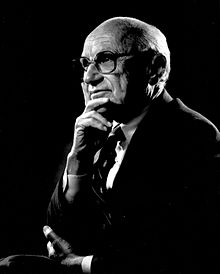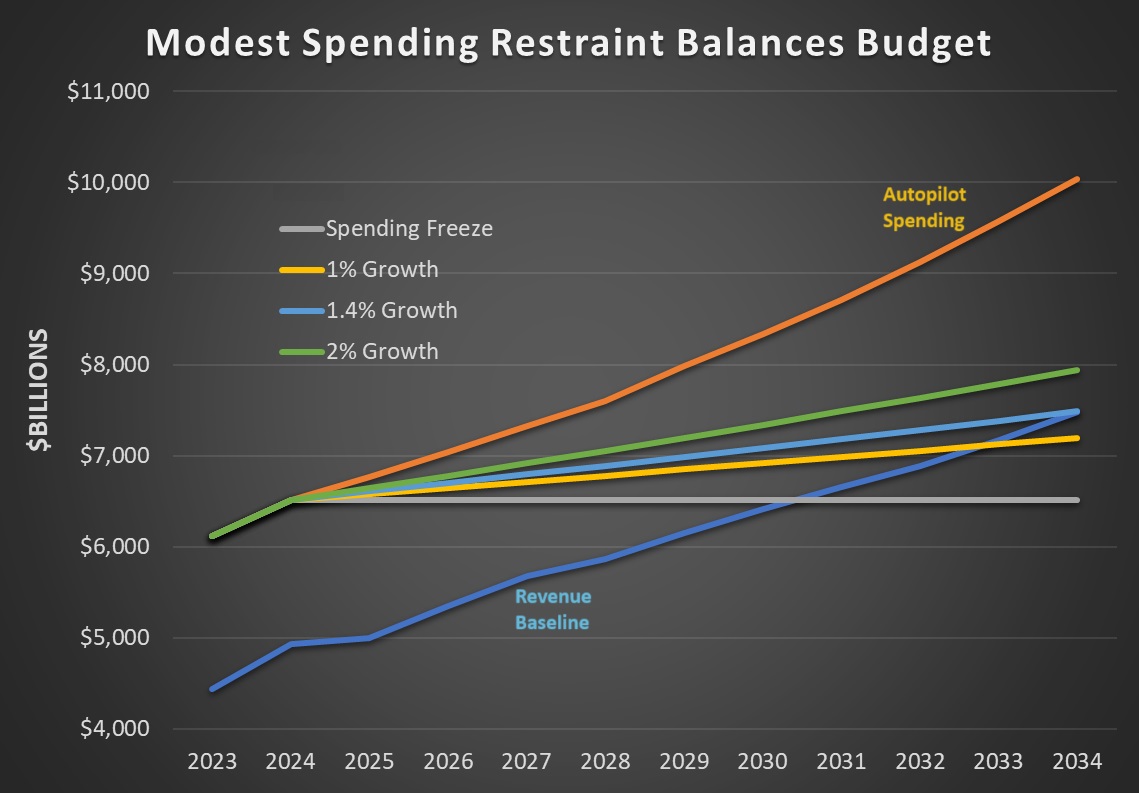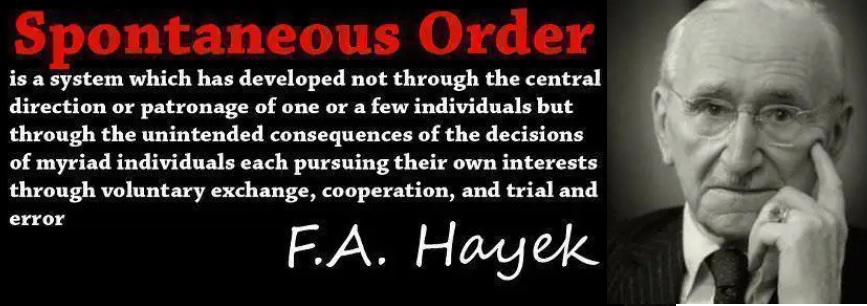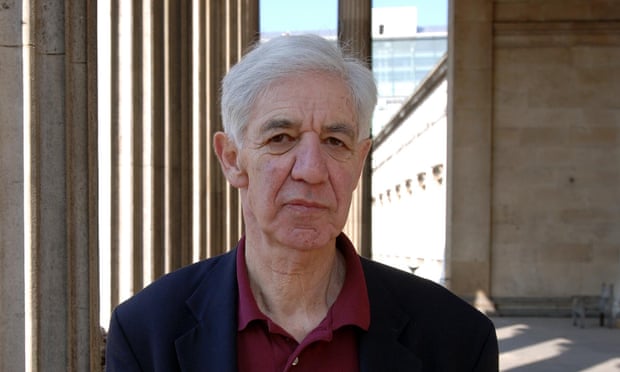_____
Sir Patrick Bateson, who has died aged 79, was a scientist whose work advanced the understanding of the biological origins of behaviour. He will also be remembered as a man of immense warmth and kindness, whose success as a leader, teacher and administrator of science owed much to his collaborative spirit, generosity and good humour.
He was a key figure in ethology – the biological study of animal behaviour. As well as being a conceptual thinker who revelled in painting the big theoretical picture, he was an accomplished experimental scientist. He published extensively, with more than 300 journal papers and several books to his name.
His early research was on imprinting – a specialised form of early learning in which young animals rapidly learn about key features of their environment, such as the distinguishing characteristics of their parent or a desirable mate. He later worked with Gabriel Horn on unravelling the neurobiological mechanisms that underpin this learning. A related interest was the biology of mate choice, where he revealed how young animals could strike an optimal balance between outbreeding and inbreeding. His research achievements led to his election as fellow of the Royal Society in 1983.
Another scientific focus was the role of play behaviour in the development of the individual. Studies with monkeys, cats and other species showed how experiences that are actively acquired through playing in early life help to build the physical, cognitive and social skills that are vital in later life.
Latterly, his primary interest turned to the evolutionary basis of development and the role of behavioural plasticity in biological evolution. His last book, published earlier this year, was Behaviour, Development and Evolution, which summarised his thinking on the inter-relationship between behavioural development during the lifespan of the individual and biological evolution during the history of species.
The research and writing were combined with teaching and administration. Over the years, he supervised 23 PhD students and contributed to the life of numerous institutions. One undergraduate recalled being captivated by his engaging personality during an otherwise dispiriting field course, and deciding then and there that he wanted to become Pat’s research student.
The official appointments were legion, and included biological secretary and vice-president of the Royal Society from 1998 to 2003. Many honours and awards accrued, including visiting professorships at Rutgers, North Carolina Chapel Hill and Berkeley. He was knighted in 2003.
In addition to his mainstream scientific work, he made significant contributions to animal welfare and research ethics. His 1997 report on the effects of hunting on red deer caused controversy, and a man who would never have dreamed of pouring vitriol on others was shocked by the amount poured on him.
Pat had a deep and infectious enthusiasm for scientific ideas. He loved life and was also enormous fun to be around. A friend remembered dancing a Japanese version of the Conga with him at a conference in Tokyo. He was a great conversationalist and a sympathetic listener who seemed immune to the intellectual rivalries that can dominate academic circles. He was also a kind man. For instance, when he heard a rumour that a former colleague was being harassed for taking an ethical stand on a controversial issue, Pat immediately offered support.
He was born in Chinnor, Oxfordshire. Though quintessentially English in character, he was three-quarters Norwegian by birth. His mother, Sölvi (nee Berg), was Norwegian, the daughter of a wartime resistance leader, and worked for the Norwegian government in exile in London; and his father, Richard, a timber expert, was half Norwegian. Pat went to Westminster school in London in 1951 and from there to King’s College, Cambridge, in 1957. He was an athlete, whose tall frame lent itself to rowing.
After graduating with a first in natural sciences and completing a PhD, he went in 1963 to Stanford University on a Harkness fellowship, accompanied by his new wife Dusha (nee Matthews), whom he had met at Cambridge. He later talked fondly of making the journey in style on board the liner Queen Mary, and of the hospitality that greeted the newlywed couple on their arrival in the US. After a postdoc at Stanford, he returned to Cambridge in 1965 as junior lecturer in the zoology department and junior research fellow of King’s. He would later become head of both institutions.
His first scientific paper, published in 1957 while still a student, was entitled Notes on the Geographical Variation of the Ringed Plover. The subject illustrates his lifelong love of natural history and the observation of animals in their natural environments. Decades later, he would become president of the Zoological Society of London and champion of its Regent’s Park and Whipsnade zoos.
His career centred on two Cambridge institutions – the university sub-department of animal behaviour at Madingley, and King’s College. He was director of the sub-department from 1976 until 1988. It was an exciting place to work during this period. The laboratory, which was tucked conveniently behind the Three Horseshoes pub, housed scientists from around the world and from various disciplines including ethology, primatology, child development and neuroendocrinology.
The “animal people” worked alongside the “people people” of a unit under Robert Hinde, whose student Pat had been. Hinde’s unit was researching the development of behaviour in humans, with particular reference to interpersonal relationships. The “people people” used observational techniques that had been developed for studying the behaviour of animals in the wild, while the “animal people” imbibed the latest thinking on developmental psychology.
In 1988 Pat was elected provost of King’s College, a role that required qualities of diplomacy, patience and charm – all of which he possessed. The role was not one he had especially hankered after. Nonetheless, he embraced the challenge and was a much-loved figure during his 15-year tenure. The Batesons found themselves hosting a succession of famous guests, including the Dalai Lama, Mikhail Gorbachev, Princess Margaret and Salman Rushdie (complete with team of armed protection officers).
Pat and Dusha loved cats and bred generations of Russian Blues and Egyptian Maus. It was while watching his own cats playing that Pat first became interested in play behaviour and its biological role in development. A friend recalled visiting the couple at King’s shortly before Princess Margaret was due to arrive, and finding them both in a flap because one of their cats had given birth to a litter of kittens in the airing cupboard outside the princess’s room.
After Cambridge, Pat and Dusha moved to a delightful old house in Suffolk that had belonged to Dusha’s parents. The house and its gardens played host to numerous guests, cats and chickens.
Pat is survived by Dusha and their daughters, Melissa and Anna.
• Paul Patrick Gordon Bateson, biologist, born 31 March 1938; died 1 August 2017
A message from Betsy Reed, editor of the Guardian US
I hope you appreciated this article. Before you move on, I wanted to ask if you would consider supporting the Guardian’s journalism as we enter one of the most consequential news cycles of our lifetimes in 2024.
From Elon Musk to the Murdochs, a small number of billionaire owners have a powerful hold on so much of the information that reaches the public about what’s happening in the world. The Guardian is different. We have no billionaire owner or shareholders to consider. Our journalism is produced to serve the public interest – not profit motives.
And we avoid the trap that befalls much US media: the tendency, born of a desire to please all sides, to engage in false equivalence in the name of neutrality. We always strive to be fair. But sometimes that means calling out the lies of powerful people and institutions – and making clear how misinformation and demagoguery can damage democracy.
From threats to election integrity, to the spiralling climate crisis, to complex foreign conflicts, our journalists contextualise, investigate and illuminate the critical stories of our time. As a global news organisation with a robust US reporting staff, we’re able to provide a fresh, outsider perspective – one so often missing in the American media bubble.
Around the world, readers can access the Guardian’s paywall-free journalism because of our unique reader-supported model. That’s because of people like you. Our readers keep us independent, beholden to no outside influence and accessible to everyone – whether they can afford to pay for news, or not.
If you can, please consider supporting us just once from $1, or better yet, support us every month with a little more. Thank you.
September 28, 2015
Dr. Pat Bateson, President, Zoological Society of London, Outer Circle, Regent’s Park, London NW1 4RY,
Dear Dr. Bateson,
I must tell you how much I enjoyed your in-depth interview that you gave Dr. Alan Macfarlane. His series of interviews have been helpful to me and I wish more people would take time to ask questions as he does. Thank for you taking the time to do that interview.
Recently I had the opportunity to come across a very interesting article by Michael Polanyi, LIFE TRANSCENDING PHYSICS AND CHEMISTRY, in the magazine CHEMICAL AND ENGINEERING NEWS, August 21, 1967, and I also got hold of a 1968 talk by Francis Schaeffer based on this article. Polanyi’s son John actually won the 1986 Nobel Prize for Chemistry. This article by Michael Polanyi concerns Francis Crick and James Watson and their discovery of DNA in 1953. Polanyi noted:
Mechanisms, whether man-made or morphological, are boundary conditions harnessing the laws of in
animate nature, being themselves irreducible to those laws. The pattern of organic bases in DNA which functions as a genetic code is a boundary condition irreducible to physics and chemistry. Further controlling principles of life may be represented as a hierarchy of boundary conditions extending, in the case of man, to consciousness and responsibility.
I would like to send you a CD copy of this talk because I thought you may find it very interesting.It includes references to not only James D. Watson, and Francis Crick but also Maurice Wilkins, Erwin Schrodinger, J.S. Haldane (his son was the famous J.B.S. Haldane), Peter Medawar, and Barry Commoner. I WONDER IF YOU EVER HAD THE OPPORTUNITY TO RUN ACROSS THESE MEN OR ANY OF THEIR FORMER STUDENTS?
Below is a portion of the transcript from the CD and Michael Polanyi’s words are in italics while Francis Schaeffer’s words are not:
My account of the situation will seem to oscillate in several directions, and I shall set out, therefore, its stages in order.
I shall show that:
- Commoner’s criteria of irreducibility to physics and chemistry are incomplete; they are necessary but not sufficient conditions of it.
- Machines are irreducible to physics and chemistry.
- By virtue of the principle of boundary control, mechanistic structures of living beings appear to be likewise irreducible.
4. The structure of DNA, which according to Watson and Crick controls heredity, is not explicable by physics and chemistry.
5. Assuming that morphological differentiation reflects the information content of DNA, we can prove that the morphology of living beings forms a boundary condition which, as such, is not explicable by physics and chemistry (the suggestion arrived at in the third item).
…Now, from machines let us pass on to books and other means of communication. Nothing is said about the content of a book by its physical-chemical topography. All objects conveying information are irreducible to the terms of physics and chemistry.
I could throw the article away for some of you that understand what DNA is because Polanyi has shot Francis Crick’s theory through the head and its dead. The argument is: Suppose someone describes a book to you and they only describe it in terms of its physical and chemical properties. What then do you know about the information transmitted by the book? Zero!! Somebody could run a chemical analysis of the book but it would carry nothing about the information contained in the book. That is impossible. This is something added to the chemical and physical properties.
Might machines and machine-like aspects of living things not be shown one day to result from the working of physical or chemical laws?
We can exclude this for machines. Our incapacity to define machines and their functions in terms of physics and chemistry is due to a manifest impossibility, for machines are shaped by man and can never be produced by the spontaneous equilibration of their material. But morphological structures are not shaped by man, could they not grow to maturity by the working of purely physical-chemical laws?
So he says it is inconceivable for machines but what about the machine-like parts of man.
Such a highly improbable arrangement of particles is not shaped by the forces of physics and chemistry. It constitutes a boundary condition, which as such transcends the laws of physics and chemistry.
This of course is his big argument.
Laplace thought we would know all that can be known in the world if we knew the course of its atoms. But for this he required a complete map of atomic positions and velocities to start with. Physics is dumb without the gift of boundary conditions, forming its frame; and this frame is not determined by the laws of physics.
Polanyi says here you need to know these boundary conditions and without this physics is dumb and the frame is not determined by the laws of physics. There is something else in the structure of what is there. Thinking of my constant emphasis on Jean Paul Sartre’s statement “the basic philosophic question is not that something is there rather than nothing being there.”
Then Albert Einstein’s statement “the universe is like a well formulated word puzzle and only one word fits.” The world has a form but it is so definite that it is like a well formulated word puzzle. Two steps in the structure of the universe. First, something is there that must be explained. Second, the niceness of its form and its order.
What Polanyi is saying is if you are going to understand what is there you must not only understand merely the chemical and physical laws but you have to be faced with the boundary conditionswhich constitutes the form. Do you understand? For some of you this may be a little abstract but it won’t be abstract if you get into a discussion with your university friends if you can really get a hold of it.
The boundary conditions of the physical-chemical changes taking place in a machine are the structual and operational principles of the machine. We say therefore that the laws of inanimate nature operate in a machine under the control of operational principles that constitute (or determine) the boundaries. Such a system is clearly under dual control.
In the machine made by man you have a dual control.Firstly, the devices of engineering, that is how you are going to make it. For instance, your plans for making a bridge or watch. Secondly, the laws of natural science. The laws of physics and chemistry and the material you use to make the bridge or watch.
________
Thank you for your time. I know how busy you are and I want to thank you for taking the time to read this letter.
Sincerely,
Everette Hatcher,
P.O. Box 23416, Little Rock, AR 72221, United States, cell ph 501-920-5733, everettehatcher@gmail.com
RESPONDING TO HARRY KROTO’S BRILLIANT RENOWNED ACADEMICS!! Part 92 Colin McGinn (use Feb 12, 2015 letter publish on 8-23-16)
On November 21, 2014 I received a letter from Nobel Laureate Harry Kroto and it said:
…Please click on this URL http://vimeo.com/26991975
and you will hear what far smarter people than I have to say on this matter. I agree with them.
Harry Kroto
Nick Gathergood, David-Birkett, Harry-Kroto
I have attempted to respond to all of Dr. Kroto’s friends arguments and I have posted my responses one per week for over a year now. Here are some of my earlier posts:
Arif Ahmed, Sir David Attenborough, Mark Balaguer, Horace Barlow, Michael Bate, Patricia Churchland, Aaron Ciechanover, Noam Chomsky,Alan Dershowitz, Hubert Dreyfus, Bart Ehrman, Stephan Feuchtwang, David Friend, Riccardo Giacconi, Ivar Giaever , Roy Glauber, Rebecca Goldstein, David J. Gross, Brian Greene, Susan Greenfield, Stephen F Gudeman, Alan Guth, Jonathan Haidt, Theodor W. Hänsch, Brian Harrison, Hermann Hauser, Roald Hoffmann, Bruce Hood, Herbert Huppert, Gareth Stedman Jones, Steve Jones, Shelly Kagan, Michio Kaku, Stuart Kauffman, Lawrence Krauss, Harry Kroto, George Lakoff, Elizabeth Loftus, Alan Macfarlane, Peter Millican, Marvin Minsky, Leonard Mlodinow, Yujin Nagasawa, Alva Noe, Douglas Osheroff, Jonathan Parry, Saul Perlmutter, Herman Philipse, Carolyn Porco, Robert M. Price, Lisa Randall, Lord Martin Rees, Oliver Sacks, John Searle, Marcus du Sautoy, Simon Schaffer, J. L. Schellenberg, Lee Silver, Peter Singer, Walter Sinnott-Armstrong, Ronald de Sousa, Victor Stenger, Barry Supple, Leonard Susskind, Raymond Tallis, Neil deGrasse Tyson, .Alexander Vilenkin, Sir John Walker, Frank Wilczek, Steven Weinberg, and Lewis Wolpert,
In the first video below in the 22nd clip in this series are his words and my response is below them.
In the You Tube video “A Further 50 Renowned Academics Speaking About God (Part 1),” Patrick Bateson asserted:
”I’m not a believer.”
Are you an agnostic or an atheist would you say?
“Well, that’s a good question, I think… Darwin’s response when he was asked whether he was an atheist was I don’t know, so I think agnostic. I think I’m actually an atheist when all is said and done, if I’m really honest about it, I really don’t believe in a God.”
Patrick Bateson (biologist, science writer and professor of ethology)
50 Renowned Academics Speaking About God (Part 1)
Another 50 Renowned Academics Speaking About God (Part 2)
A Further 50 Renowned Academics Speaking About God (Part 3)
_________________________________
________
Related posts:
FRANCIS SCHAEFFER ANALYZES ART AND CULTURE Part 53 THE BEATLES (Part E, Stg. Pepper’s and John Lennon’s search in 1967 for truth was through drugs, money, laughter, etc & similar to King Solomon’s, LOTS OF PICTURES OF JOHN AND CYNTHIA) (Feature on artist Yoko Ono)
The John Lennon and the Beatles really were on a long search for meaning and fulfillment in their lives just like King Solomon did in the Book of Ecclesiastes. Solomon looked into learning (1:12-18, 2:12-17), laughter, ladies, luxuries, and liquor (2:1-2, 8, 10, 11), and labor (2:4-6, 18-20). He fount that without God in the picture all […]
FRANCIS SCHAEFFER ANALYZES ART AND CULTURE Part 52 THE BEATLES (Part D, There is evidence that the Beatles may have been exposed to Francis Schaeffer!!!) (Feature on artist Anna Margaret Rose Freeman )
______________ George Harrison Swears & Insults Paul and Yoko Lucy in the Sky with Diamonds- The Beatles The Beatles: I have dedicated several posts to this series on the Beatles and I don’t know when this series will end because Francis Schaeffer spent a lot of time listening to the Beatles and talking […]
FRANCIS SCHAEFFER ANALYZES ART AND CULTURE Part 51 THE BEATLES (Part C, List of those on cover of Stg.Pepper’s ) (Feature on artist Raqib Shaw )
The Beatles in a press conference after their Return from the USA Uploaded on Nov 29, 2010 The Beatles in a press conference after their Return from the USA. The Beatles: I have dedicated several posts to this series on the Beatles and I don’t know when this series will end because Francis […]
FRANCIS SCHAEFFER ANALYZES ART AND CULTURE Part 50 THE BEATLES (Part B, The Psychedelic Music of the Beatles) (Feature on artist Peter Blake )
__________________ Beatles 1966 Last interview I have dedicated several posts to this series on the Beatles and I don’t know when this series will end because Francis Schaeffer spent a lot of time listening to the Beatles and talking and writing about them and their impact on the culture of the 1960’s. In this […]
FRANCIS SCHAEFFER ANALYZES ART AND CULTURE Part 49 THE BEATLES (Part A, The Meaning of Stg. Pepper’s Cover) (Feature on artist Mika Tajima)
_______________ The Beatles documentary || A Long and Winding Road || Episode 5 (This video discusses Stg. Pepper’s creation I have dedicated several posts to this series on the Beatles and I don’t know when this series will end because Francis Schaeffer spent a lot of time listening to the Beatles and talking and writing about […]
FRANCIS SCHAEFFER ANALYZES ART AND CULTURE PART 48 “BLOW UP” by Michelangelo Antonioni makes Philosophic Statement (Feature on artist Nancy Holt)
_______________ Francis Schaeffer pictured below: _____________________ I have included the 27 minute episode THE AGE OF NONREASON by Francis Schaeffer. In that video Schaeffer noted, ” Sergeant Pepper’s Lonely Hearts Club Band…for a time it became the rallying cry for young people throughout the world. It expressed the essence of their lives, thoughts and their feelings.” How Should […]
FRANCIS SCHAEFFER ANALYZES ART AND CULTURE Part 47 Woody Allen and Professor Levy and the death of “Optimistic Humanism” from the movie CRIMES AND MISDEMEANORS Plus Charles Darwin’s comments too!!! (Feature on artist Rodney Graham)
Crimes and Misdemeanors: A Discussion: Part 1 ___________________________________ Today I will answer the simple question: IS IT POSSIBLE TO BE AN OPTIMISTIC SECULAR HUMANIST THAT DOES NOT BELIEVE IN GOD OR AN AFTERLIFE? This question has been around for a long time and you can go back to the 19th century and read this same […]
FRANCIS SCHAEFFER ANALYZES ART AND CULTURE PART 46 Friedrich Nietzsche (Featured artist is Thomas Schütte)
____________________________________ Francis Schaeffer pictured below: __________ Francis Schaeffer has written extensively on art and culture spanning the last 2000years and here are some posts I have done on this subject before : Francis Schaeffer’s “How should we then live?” Video and outline of episode 10 “Final Choices” , episode 9 “The Age of Personal Peace and Affluence”, episode 8 […]
FRANCIS SCHAEFFER ANALYZES ART AND CULTURE Part 45 Woody Allen “Reason is Dead” (Feature on artists Allora & Calzadilla )
Love and Death [Woody Allen] – What if there is no God? [PL] ___________ _______________ How Should We then Live Episode 7 small (Age of Nonreason) #02 How Should We Then Live? (Promo Clip) Dr. Francis Schaeffer 10 Worldview and Truth Two Minute Warning: How Then Should We Live?: Francis Schaeffer at 100 Francis Schaeffer […]
FRANCIS SCHAEFFER ANALYZES ART AND CULTURE Part 44 The Book of Genesis (Featured artist is Trey McCarley )
___________________________________ Francis Schaeffer pictured below: ____________________________ Francis Schaeffer “BASIS FOR HUMAN DIGNITY” Whatever…HTTHR Dr. Francis schaeffer – The flow of Materialism(from Part 4 of Whatever happened to human race?) Dr. Francis Schaeffer – The Biblical flow of Truth & History (intro) Francis Schaeffer – The Biblical Flow of History & Truth (1) Dr. Francis Schaeffer […]
__




